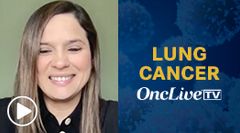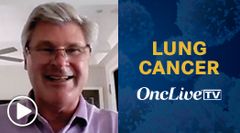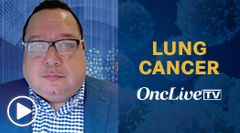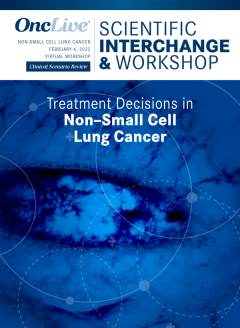
Dr. Socinski on Treatment Considerations for Difficult-to-Treat Patients in Lung Cancer
Mark A. Socinski, MD, executive director, Thoracic Center, medical oncologist, AdventHealth Cancer Institute, discusses therapeutic considerations for difficult-to-treat patients in lung cancer.
Mark A. Socinski, MD, executive director, Thoracic Center, medical oncologist, AdventHealth Cancer Institute, discusses therapeutic considerations for difficult-to-treat patients in lung cancer.
Patients who tend to be difficult-to-treat include those who are particularly compromised by their disease, Socinski says. This can include those with poor performance status; clinical trials are generally restricted to patients with an ECOG performance status of 0 to 1, which involves patients who are fully ambulatory, and relatively minimally symptomatic, Socinski explains. However, there are patients who are compromised by the disease and tend to experience the impact of comorbidities, Socinski says.
These patients may see the impact of comorbidities in the form of severe COPD chronic obstructive pulmonary disease, heart disease, previous stroke, or bad diabetes, Socinski continues. These comorbidities can make the treatment difficult for both patients and their treating oncologists, Socinski says. Overall, these patients require more of a demanding thought process in terms of their optimal treatment approach and sequence what would work best throughout the treatment process, Socinski concludes.










































